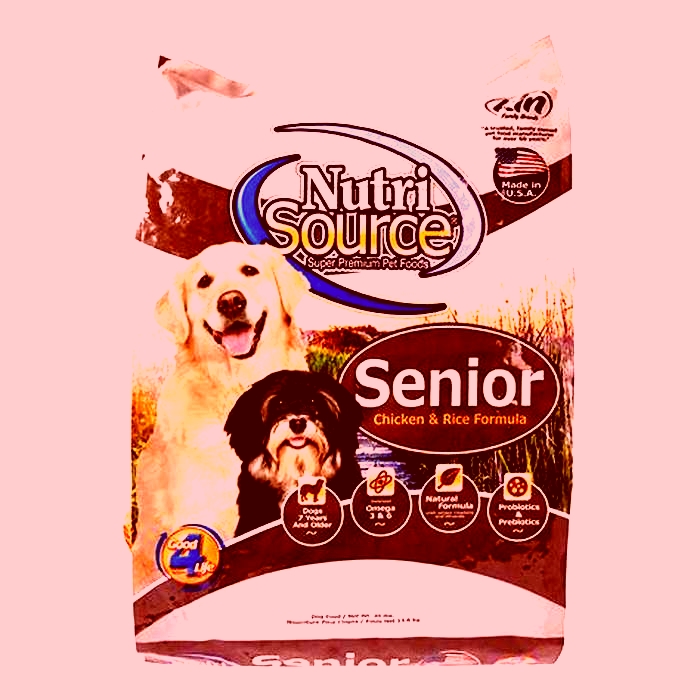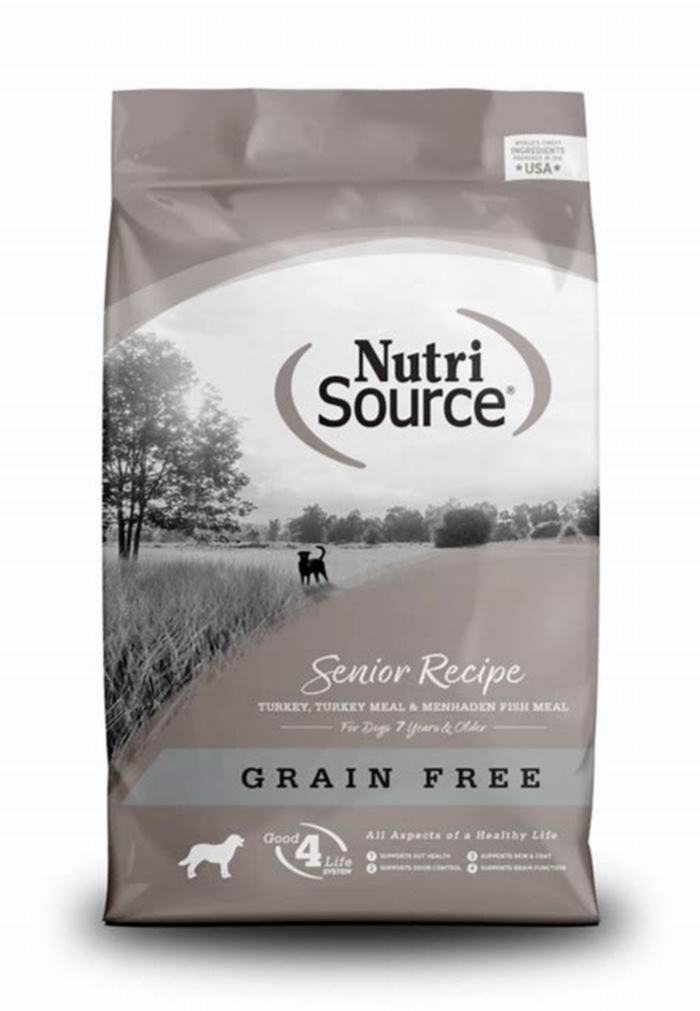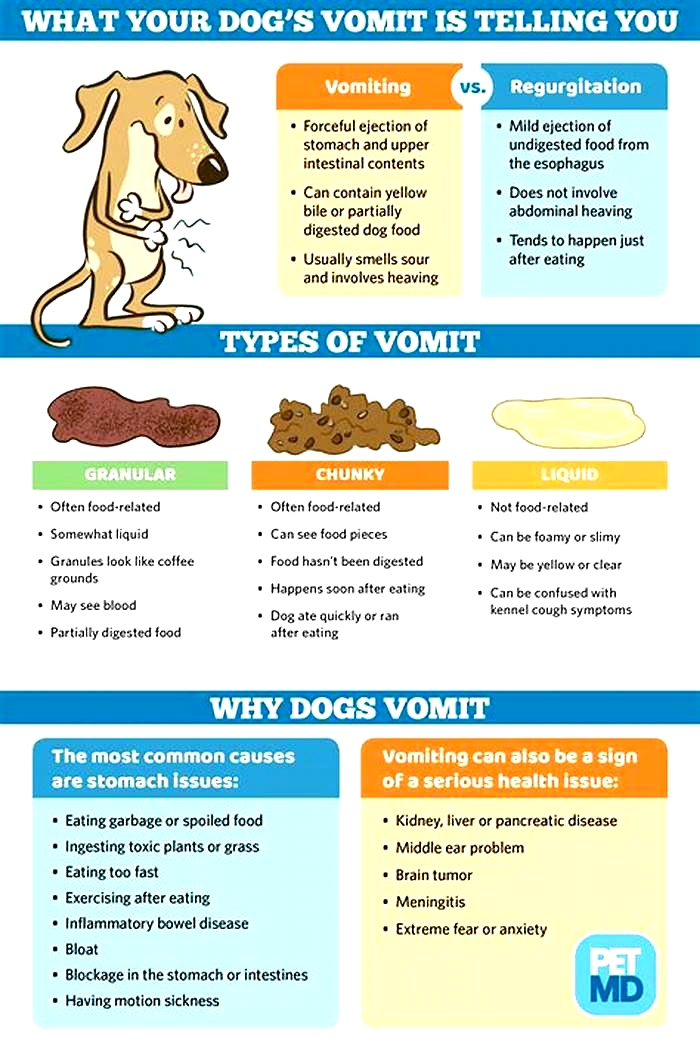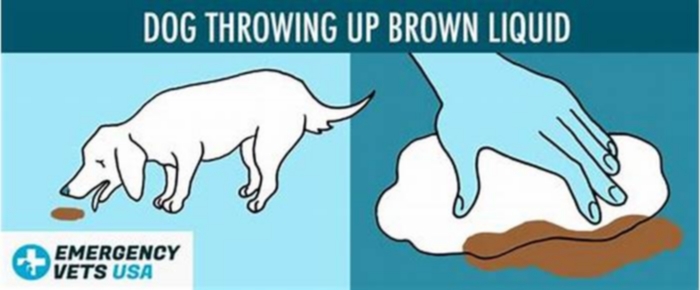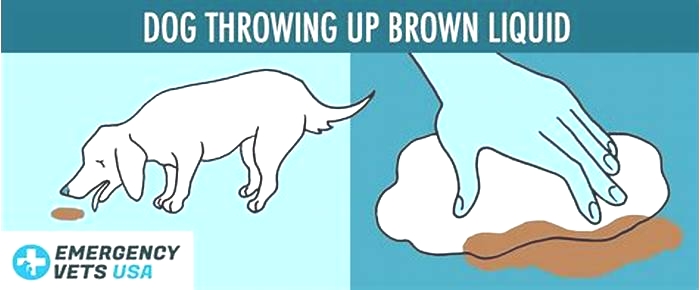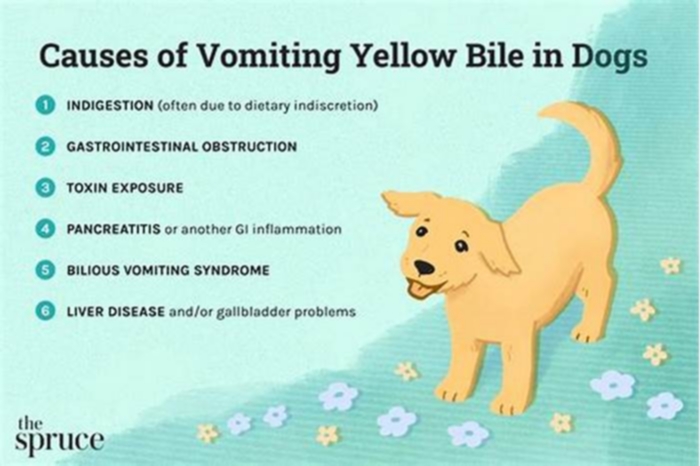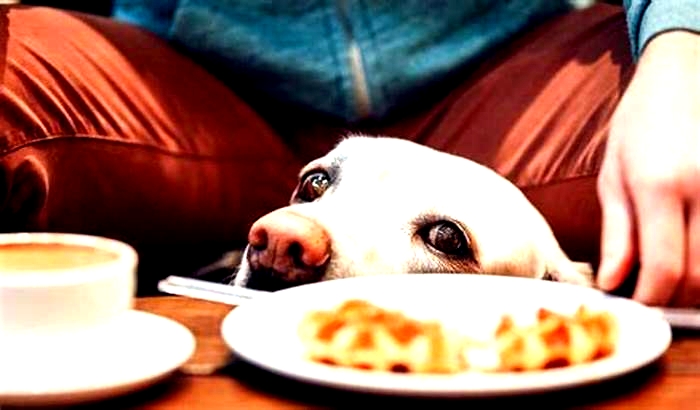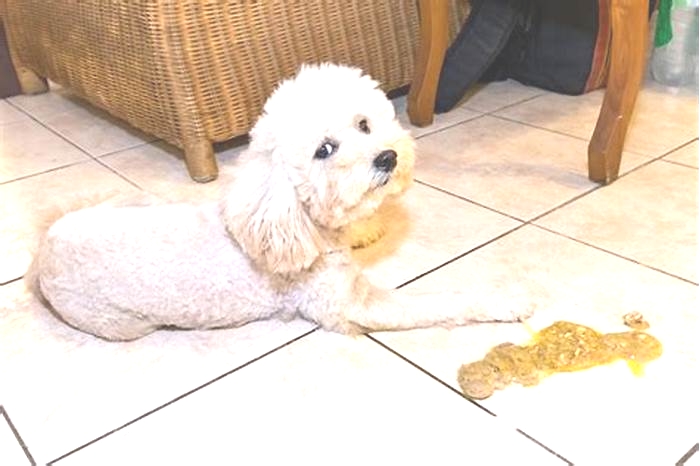senior dog throwing up undigested food
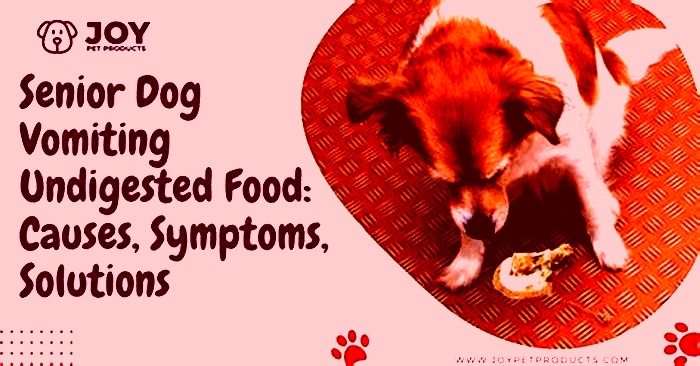
Why Is My Dog Throwing Up Undigested Food? When to Be Concerned
Updated May 26, 2023
If you have a dog, theres a good chance that youll see them throw up at some point or another. Dogs vomit occasionally its just one of those things that is a part of life when you share your home with a canine companion.
But while one isolated episode of vomiting might not be a huge cause for concern, that doesnt mean vomiting is nothing to worry about. What happens if your dog is vomiting frequently or if theyre throwing up undigested food?
There are many, many reasons why a dog might vomit. And to make matters more confusing, vomiting is technically not the same thing as regurgitation, even though we tend to think of the terms as having the same definition. So what exactly causes vomiting in dogs, and what can you do about it?
Lets take a closer look at this unpleasant aspect of dog ownership and care. That way, youll know when to be concerned and what to do next.
Your Dog's Digestive System
Before we jump into the why dogs might throw up, its important to understand how a their digestive system works and what can go wrong.
When your pup eats something, their stomach breaks down the food using hydrochloric acid and enzymes. The partially digested contents enter their small intestine where nutrients are absorbed before the waste is passed into the large intestine. Your dog's digestive tract is designed to absorb the nutrients and then expel the rest.
When your pup isnt feeling well, they may vomit up their partially digested food. But if your pup is throwing up undigested food meaning it appears almost exactly as when they ate it that could be a sign of an underlying condition like an obstruction or a bacterial infection.
In any case, if your pup is vomiting up their food more than two or three times in one day, its time to call the vet. The same is true if theyre having trouble keeping anything down even water! Your pup might also experience lethargy and loss of appetite when their digestion is off.
Its always a good idea to take your pup in for an exam if theyre experiencing vomiting, regardless of the frequency or contents. That way, you can get to the root cause and treat it before it gets worse.
Difference Between Vomiting vs. Regurgitation
Most of the time, we think of vomiting and regurgitation as the same thing. But these terms refer to different actions in dogs.
Regurgitation is the return of food into the oral cavity after it has been swallowed. The food never started getting digested before it was expelled your pups abdominal muscles didnt push the stomach contents back up into the esophagus and mouth. A combination of the esophageal muscles and gravity did.
Vomiting, on the other hand, does involve the muscles in the abdomen pushing stomach contents out of the stomach and back into the esophagus and mouth. Those contents will be partially digested. Vomiting is more of an active experience for your dog while regurgitation can happen passively without your pooch really controlling it.
Why does regurgitation occur? Typically, it happens when your dog:
- Eats too much
- Eats too fast
- Experiences stress, anxiety, or over-excitement
- Suffers from a dilated esophagus (megaesophagus), a condition that causes the esophagus to expand and fail to move food into the stomach correctly
So, regurgitation is something that many dogs can experience without actually having something medically wrong with them. (The exception is megaesophagus, and you should contact your veterinarian if your dog regurgitates frequently.) Vomiting, though, is more concerning.
Causes of Vomiting
Before your dog vomits, youll probably see them pace around for a few moments, then theyll begin gagging and retching before vomiting. Along with partially digested dog food, the stomach contents will probably include some fluid.
If that fluid is clear, then its normal stomach fluid. However, if its green or yellow, its bile and probably came from the small intestine. This means that your dogs food had already started being digested before your dog threw it up.
The presence of bile isnt necessarily a cause for concern, but it does mean that your dogs system is vomiting up stomach contents that had already started getting digested, which is never entirely normal.
So what causes dog vomiting, exactly? There are a multitude of possibilities, including:
- Viruses
- Intestinal parasites like hookworms, whipworms, roundworms, or tapeworms
- Food allergies
- Ingestion of garbage
- Ingestion of too much rich, fatty, or buttery food
- Ingestion of foreign objects (dirt, rocks, clothing, tennis balls, etc.)
- Liver or kidney health
- Ingestion of a toxic agent (pesticides, cleaning products, antifreeze, etc.)
- Motion sickness, most likely when riding in a car
On the contrary, if your dog's starts vomiting blood or shows signs of pain, dont wait for the vet. Seek emergency care right away these are possible indications of a serious medical emergency.
No matter the cause of your pups vomiting, its important to keep a close eye on them and contact your veterinarian if they dont seem to be improving or if the vomit contains blood. Your vet can provide food suggestions, medications, and other treatments that will get your pup back on the road.
Warning Signs for Dog Parents
The occasional episode of vomiting probably isnt something to worry about, but you should keep a close eye on your pet after he or she has vomited. If other signs and symptoms accompany the vomiting, its time to call the vet.
Watch for:
- Frequent vomiting. If your pup wont stop vomiting, its a cause for concern. Consult with a vet if you see signs of serious problems.
- Additional symptoms. Keep an eye on your dog after the vomiting episode. If you notice things like diarrhea, drooling, nasal discharge, sneezing, seizures, or other medical abnormalities, something is wrong. And if your dogs vomit appears to be bloody dried blood often looks like coffee grounds in the vomit theyll definitely need veterinary attention.
- Changes in behavior. Have you noticed behavioral changes in your dog after their vomiting? Loss of appetite, weakness, noticeable weight loss, and sensitivity to touch around the abdomen (indicative of abdominal pain) are just a few examples. Let your vet know if youre concerned about behavioral changes.
You should also be aware of a dangerous condition called bloat, especially if you have a bigger dog the problem is more common in large breeds. In a case of bloat, a dogs stomach twists, blocking the escape of stomach contents and forcing the stomach to expand.
One of the telltale signs of bloat is retching and gagging without producing any material. If you see your dog doing this, let your vet know immediately.
Responding to Your Dogs Vomiting
If your dog is exhibiting frequent vomiting, or if you know or suspect that theyve ingested something they shouldnt have like a foreign body or a toxic agent, call your vet right away.
Veterinary care may include a thorough physical exam, x-ray or ultrasound scans, stool sampling, blood tests, and more. A dog who is suffering from chronic vomiting will become dehydrated, and may need IV fluids to correct it.
Once the dog is stable, your veterinarian will go about treating the underlying cause of your dogs vomiting.
Often, though, youll just see your dog vomit once, or regurgitate food theyve just eaten. In these cases, youll want to keep an eye on your pup to see if they exhibit any other symptoms or unusual behaviors. If they dont, your dog is most likely fine.
Veterinarians also sometimes recommend withholding food and water for a half or full day after a vomiting episode, as this gives the digestive system time to rest and the stomach lining a chance to repair itself.
Then you can try feeding Fido a bland diet of plain white rice and fully cooked chicken for a couple meals until returning them to their normal food. Remember not to feed this long term, as it does not constitute a balanced diet.
You might also try giving your dog a digestive supplement or a probiotic to help his or her digestive system function better as time goes on.
So, What caused it?
At the end of the day, there are many possible reasons why your dog might throw up partially digested or undigested food. They might also regurgitate food that hasnt even had a chance to be digested.
One of the most common causes is gastritis or simple stomach irritation usually caused by your dog eating something they shouldnt but other serious issues could be to blame.
If your dog vomits once, keep a close eye on them to see if anything else happens. If nothing else occurs, your pup is most likely fine. But if you see additional symptoms or unusual behavior, let your veterinarian know.
You know your dog best. If you think their vomiting warrants concern, play it safe and call your veterinarian. Its always better to be safe than sorry!
Causes and Treatments of an Old Dog Throwing Up
After practicing as a veterinarian for more than 25 years and being chief of staff at Animal House of Chicago, I have treated my fair share of cases of elderly dogs vomiting. The cause of an old dog throwing up has ranged from something simple, like the dog eating too many dog treats, to more complex issues, like liver or kidney disease.
Senior dogs, like puppies, are not as resilient and may become significantly and more rapidly affected by vomiting compared with adult dogs. Therefore, its important to address the situation with your veterinarian if your senior dog is throwing up, and find the root issue.
Is an Old Dog Throwing Up an Emergency?
Vomiting is the forceful expulsion of stomach contents through the mouth. The difference between vomiting and regurgitation is that in regurgitation, the food expelled comes from the mouth or esophagus versus the stomach. Vomiting involves the forceful contraction of stomach muscles; regurgitation does not. Both vomiting and regurgitation can occur right after eating or drinking, or up to several hours later. If your dog is bright and alert, and only vomits once, it may not be necessary to call your veterinarian. Many dogs will vomit after eating grass, for instance.
Vomiting can be more dangerous in senior dogs because they may already have other health issues, as well as the fact that vomiting can be severely dehydrating.
If your older dog is vomiting a lot, or just more than once, or appears sick, call your veterinarian. Your vet will likely ask you a series of questions to determine how severe the vomiting is. It will be helpful for your veterinarian to know when your elderly dog started vomiting, how many times your dog has vomited, what the vomit looks like (for example, if your senior dog is throwing up undigested food, or if your dog is throwing up yellow bile) and if your dog appears uncomfortable. Call your veterinarian immediately if:
- There is blood in the vomit.
- Your dog acts like they want to vomit, but nothing is expelled.
- Your dog appears bloated or has a swollen abdomen.
- You suspect your dog may have eaten something toxic or poisonous.
- Your dog has a fever or is depressed.
- Your dogs gums are pale or yellow.
- Your dog appears to be in pain.
- Your dog also has diarrhea.
Never give your dog any medications, including over-the-counter human medications, unless advised to do so by your veterinarian.
Why Is My Old Dog Throwing Up
Conditions in older dogs that may cause vomiting include:
- Bacterial infection of the gastrointestinal tract
- Diet-related causes (diet change, food intolerance, ingestion of garbage)
- Foreign body (i.e., toys, bones, etc.) in the gastrointestinal tract
- Intestinal parasites
- Acute kidney disease/failure
- Acute liver disease/failure
- Gallbladder inflammation
- Pancreatitis
- Post-operative nausea
- Ingestion of toxic substances
- Viral infections
- Certain medications or anesthetic agents
- Bloat
- Heatstroke
- Car sickness
- Infected uterus (in non-spayed females)
Determining Why an Old Dog Is Throwing Up
Looking at the list above, its clear that many things can be behind a senior dog throwing up. It is important to determine the cause so the appropriate treatment can be given. Your veterinarian will combine information from you, a physical exam and possibly laboratory and other diagnostic tests to determine the cause of the vomiting.
Be prepared to tell you vet how suddenly the symptoms appearedsuch as the contraction of abdominal muscles, as well as the actual vomiting. This is a good clue to what the cause of the vomiting may be. If the symptoms appeared suddenly, the condition is called acute." If the symptoms continue over a long period of time (like if your old dog is vomiting a lot over a period of weeks), this is called chronic vomiting.
Your veterinarian may recommend the following:
- Fecal Test
- Blood Test
- X-Ray
- Ultrasound
- Endoscopy
- Biopsy
What to Do When an Old Dog Is Throwing Up
Treatment for a dog with an upset stomach varies depending on the scenario. In many cases of vomiting in dogs, your vet may advise you to:
- Withhold food for at least 24 hours, while providing small amounts of water frequently.
- Then, offer a bland diet, such as boiled chicken and rice, in small amounts.
- If the vomiting does not recur, slowly switch your dog back to their normal diet, or a special diet as recommended by your vet, over the course of several days.
For some cases of vomiting, it may be necessary to modify the diet permanently. Special or prescription dog food may need to be given as a way to avoid certain ingredients, add fiber to the diet, decrease the fat intake or increase digestibility.
If intestinal worms are present:
- Give your dog a de-wormer. Your vet can prescribe the appropriate de-wormer. Few de-wormers kill every kind of intestinal worm, so its very important that the appropriate medication be selected. In most cases, its necessary to repeat the de-worming one or more times over several weeks or months.
- Remove the worm eggs from the environment. The fecal flotation test looks for worm eggs, and if no eggs are being produced, the test could be (false) negative even though adult worms or larvae could be present. For this reason, in some cases, even if the fecal flotation test is negative, a de-wormer may still be prescribed.
If dehydration is present:
- Your vet may provide fluids either via intravenous or subcutaneous route. Oral fluids are often inadequate during vomiting or diarrhea because they may be vomited up or pass through the animal too quickly to be sufficiently absorbed.
If the vomiting is caused by bacteria:
- Your vet may prescribe antibiotics. Antibiotics may also be given if the stomach or intestines have been damaged (e.g., blood in the stool or vomit would indicate an injured intestine or stomach) and there is a chance that the injury could allow bacteria from the digestive tract into the bloodstream.
In some cases of vomiting, anti-emetics (drugs to help control vomiting), like Cerenia, or other medications may be given. It is always important to have an accurate diagnosis before the use of any of these drugs or medications, and its best to closely follow your veterinarians recommendations regarding appropriate treatment.
While some diseases that cause vomiting in senior dogs, such kidney or liver disease, may not be curable and require continuous medication and treatment, you and your veterinarian can work together to maintain the highest quality of life for your senior dog, for the greatest amount of time.
Frequently Asked Questions
Q: Why is my old dog vomiting yellow bile?
A: Your old dog may be vomiting yellow material first thing in the morning if they go too long between meals. Try changing mealtime so that you are feeding your dog later in the evening, or give them a high protein snack (such as unseasoned chicken breast, liver treats or deli turkey) right before bed. If this doesn't help, call your vet.
Q: Why is my old dog vomiting white foam?
A: White foam usually occurs when a dog is vomiting on an empty stomach. It could be due to stomach irritation or an obstruction, or could it be due to kennel cough. If happens more than 1-2 times in a 24-hour period, or if happens regularly, call your vet.
Q: What should I feed my senior dog if they are throwing up?
A: If your old dog vomits 1-2 times in a 24-hour period, fast your dog for the remainder of the day. You can offer small amounts of water or ice chips to keep your dog hydrated. If the vomiting stops, then you can feed your senior dog small amounts of a bland food the next dayeither a prescription digestive food from your vet or boiled chicken breast and white rice with NO seasoning. If your dog does well with that (no vomiting), continue feeding the bland food for 3-5 days, and then slowly transition back to their regular food by mixing the regular food with the bland diet for 2-3 days.
If your senior dog vomits more than 1-2 times in a 24-hour period, or your dog starts vomiting after you feed your dog, or if your dog has diarrhea or is acting sick in any other way, call your vet immediately and schedule an appointment ASAP to get your dog seen by a vet.






